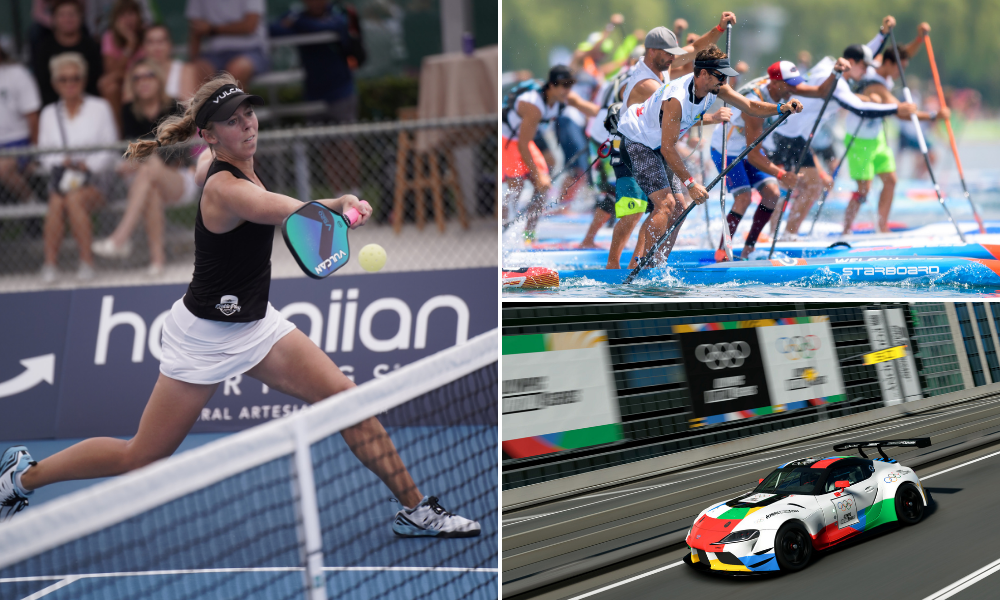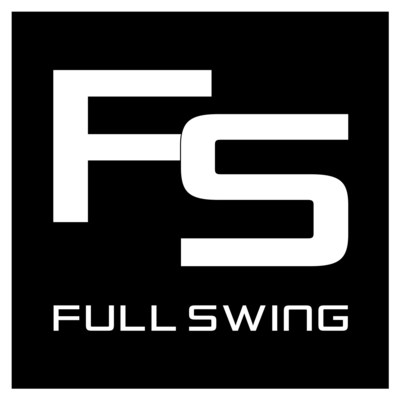From pickleball to padel and disc golf: The fight for control of some of the world’s fastest-growing sports
Ten years ago padel, disc golf and pickleball might have been mistaken for arcade games but today they are among a group of emerging sports that are gathering popularity.
As the ongoing power struggle in padel has demonstrated, though, the professionalisation of these games can result in a tussle for control akin to a sporting civil war. With broadcasters and sponsors increasingly willing to invest in these disciplines, there are a number of stakeholders keen to position themselves as the overarching arbiter, whether they be global governing bodies, independent tours or institutional investors.
A number of these sports also have aspirations of pushing past their modest beginnings and gaining global recognition by featuring at future editions of multi-sport events. In most cases, that goal requires becoming a member of the Global Association of International Sports Federations (GAISF), which in itself can be a lengthy process.
With that in mind, SportsPro takes a look at the current state of play in some of the world’s fastest-growing sports, the organisations seeking to move them forward, and how some disputes could potentially be resolved.
Padel heads for court as Qatar splashes the cash
Perhaps the most high profile ongoing battle for control is playing out in the world of padel, an increasingly popular hybrid of squash and tennis that is widely considered to be among the world’s fastest-growing sports.
Padel is hugely popular in Spain and Argentina but now has bigger ambitions of featuring at the Olympic Games as soon as 2028 as it starts to catch on further afield. Jurgen Klopp, the manager of Premier League soccer side Liverpool, is a big fan and even had courts installed at the club’s training complex, while former world number one tennis player Andy Murray is an investor in a business seeking to build padel facilities across the UK.
It also happens to be a passion of Nasser Al-Khelaifi, one of the most influential figures in world sport. He is chairman of Qatar Sports Investments (QSI), a state-run investment vehicle which is backing a new global tour in partnership with the International Padel Federation (FIP) and the sport’s Professional Players Association (PPA).
Those involved in the new tour – known as Premier Padel – have described it as transformational for the sport and are promising greater rewards for the players. The prize money for each category one event – which will account for four out of at least ten tournaments planned for this year – will be €525,000, while a major broadcast deal covering Latin America has already been secured with ESPN. What’s more – and somewhat antagonistically – is that an announcement launching the new circuit referred to it as ‘the only official tour in the sport of padel’.
The problem? Most star players are tied into contracts until 2023 with the World Padel Tour (WPT), an entity owned by Setpoint Events and sponsored by Spanish beer company Estrella Damm that runs competitions outside the jurisdiction of the sport’s global governing body. In the same week that the Qatari-backed circuit was unveiled, the WPT announced an international media rights deal with Spanish agency Mediapro, suggesting that it has no intention of either collaborating with or losing the sport’s top talent to a new rival tour.
Its detractors have likened the WPT to a closed-off Super League – its contracts prevent its athletes from featuring in other competitions – and letters seen by SportsPro suggest that the players are far from content despite the Estrella-backed circuit’s promise to increase prize money for 2022.
Paquito Navarro, who is one of the top ranked male players in the world, told Reuters: “My intention is to play both tours because we want to respect the contract with World Padel Tour, but we also want to be free to earn a little more money.”
The next stop? The courts. At the time of writing, the FIP had filed a complaint to the European Commission claiming that the contracts binding the players are essentially illegal under EU competition rules. It also claimed that players are given no say in decision-making processes, with contracts preventing them from playing in other events and offering them little financial reward. A statement issued by Premier Padel earlier this week claimed that the WPT is threatening the top 20 players with a €12.5 million fine if they compete in other tournaments.
“This legal action at the European Commission by the Federation and the Professional Players Association is unprecedented,” FIP president Luigi Carraro said in a statement published by Reuters. “It highlights in the clearest terms WPT’s abusive and exploitative monopoly regime, which has held padel players under its grip for years – insulting the professional athletes and stifling the global growth and ambition of the sport.
“The fact this action has been forced to be brought in the first place is a shocking indictment in itself of private, closed, commercially exploitative and unregulated leagues that imprison the professional players.”
The ball is now in the hands of the courts.
The Estrella Damm-backed World Padel Tour has contracts with the sport’s top players
Esports governance picture remains blurry
It was back in 2017 when the International Olympic Committee (IOC) first said that esports could be considered a sporting activity because of the level and intensity of training undergone by professional gamers. But for competitive gaming to be recognised by the Lausanne-based body, IOC rules dictate that the discipline requires ‘the existence of an organisation guaranteeing compliance with the rules and regulations of the Olympic Movement’.
Nearly five years on, it’s still unclear if an organisation with that level of autonomy exists.
Esports is the sporting world’s Benjamin Button. It’s journey towards being recognised as a sport has taken an unusual path purely because of how developed the gaming ecosystem already is. Unlike in traditional sports, where leagues and competitions abide by rules set by their global governing bodies, the key stakeholders in esports are the publishers.
The likes of Riot Games, Activision Blizzard and Epic Games bring in billions of dollars in revenue each year and independently organise their own leagues or competitions, which do not come under the umbrella of any overarching regulatory body.
It remains to be seen whether the publishers would even be interested in being governed by such an entity. As a consequence, both national associations and international federations are what would be considered as emerging stakeholders in esports. Further confusing matters is the fact that several organisations have now been established that, on the surface, appear to be laying claim to the same thing.
Founded in 2008, the South Korea-based International Esports Federation (IESF) was for a long time the only organisation that resembled something close to a global governing body for competitive gaming. It operates similar to other international federations in that its members are national associations, it runs world championship events, and has the stated aim of growing the sport.
Esports featured as a medal event at the 2019 Southeast Asian Games
It was only when esports started to get more mainstream attention that other organisations appeared. The World Esports Association (WESA) was set up in 2016 with a goal of further professionalising competitive gaming by introducing elements of player representation, standardised regulations and revenue shares for teams. It claims to be ‘based on similar traditional sports associations’, but its executive board is made up of individuals from tournament organisers such as ESL and teams like Ninjas in Pyjamas, rather than national associations.
And then, in 2019, along came the Global Esports Federation (GEF) with a somewhat similar mission to the IESF. Headquartered in Singapore and backed by Chinese internet giant Tencent, the GEF says it ‘promotes the credibility, legitimacy and prestige’ of esports and boasts partnerships with more than 100 member federations, global brands, publishers, and developers.
Still, even with the IOC making its first meaningful move into esports with the Olympic Virtual Series, it remains unclear precisely how much clout any of these organisations genuinely have. The GEF has taken arguably the biggest step towards greater legitimacy through its partnership with the Commonwealth Games Federation (CGF), which this summer will run an esports championships in Birmingham alongside its flagship event. The GEF is deciding which titles will feature.
Speaking to Inside the Games in November, IESF secretary general Boban Totovski admitted that the landscape is currently confusing and reportedly expressed a willingness to sit down with the GEF in the future.
“I do not see the benefit [of having two global bodies] as the only thing it does is it disrupts the market,” he said. “Now when we have a member and the GEF has a member in that country, they both go to the governments and they say: ‘Wait there are two international bodies, I am not recognising you, go fix your backyard first and come back to me.’”
Disc golf bodies see greater good in collaboration
All eyes were on disc golf last summer when a clip of James Conrad making a seemingly impossible 247-foot shot went viral on social media. That birdie, which has now been viewed nearly one million times on Twitter, forced a playoff in the world championship organised by the Professional Disc Golf Association (PDGA), which describes itself as ‘the governing body for the sport’. It sanctions more than 5,700 annual tour events offering a collective prize purse of over US$4.5 million.
James Conrad won the men’s disc golf world title, but only after this took him into a play-off pic.twitter.com/omx813oRYh
— James Dart (@James_Dart) June 27, 2021
Complicating matters, though, is the existence of the World Flying Disc Federation (WFDF), which claims to be the international federation ‘responsible for world governance of flying disc sports, including ultimate, beach ultimate, disc golf, freestyle, guts, and individual events.’
The two organisations, ostensibly serving the same purpose, have had an on-and-off relationship for several years. In 2014, the pair signed a memorandum of understanding to cooperate on growing disc golf’s international reach, only for the PDGA to exit that relationship two years later. In a statement issued at the time to the Ultiworld Disc Golf website, the PDGA explained that it took the decision because the WFDF ‘are much smaller’ and ‘have limited resources’, insisting that it was better to pursue the development of the sport ‘outside the constraints of a formal relationship’.
Despite the PDGA boasting greater resources, it is the WFDF that is the umbrella body for all disc sports, disc golf included – at least as far as the IOC and GAISF are concerned.
With ambitions of seeing disc golf feature at the World Games and potentially even the Olympics, the PDGA and WFDF now appear to have decided that they are stronger together after all. At the end of August the two parties announced that they were renewing their relationship to promote the sport, with the PDGA becoming an associate member of the WFDF.
We believe that there will be a number of mutual benefits from resuming a closer relationship between the PDGA and WFDF.
Robert Rauch, President, World Flying Disc Federation
Robert Rauch, the president of the WFDF, said: “We believe that there will be a number of mutual benefits from resuming a closer relationship between the PDGA and WFDF including improved communication between our two organisations, a leveraging of the respective resources of our organisations to achieve our mutual growth objectives and greater recognition in the larger world of sport. We can also learn from each other in areas where we may have different strengths.”
Pickleball taking steps towards professionalisation
Pickleball, so the story goes, was invented back in 1965 by Joel Pritchard, a congressman for Washington state, and his two golf buddies on Banbridge Island. Yet it wasn’t until recently that the tennis-like game experienced a popularity boom that has seen it christened the fastest-growing sport in the United States, where there are now an estimated 4.8 million pickleball players.
There’s a popular narrative that the sport was given a shot in the arm by the Covid-19 pandemic as people sought new ways to interact outdoors, while traction has also come from a small army of celebrity fans who have publicly stated that they play pickleball in their spare time. In truth, though, much of the growth stems from the fact that pickleball is simple to understand and can be played almost anywhere, whether it be on a tennis court – one has enough space for four pickleball games – in the park or on a driveway.
There are now an estimated 4.8 million Pickleball players in the US (Image credit: Steve Taylor/USA Pickleball)
Despite the recent growth, pickleball remains “young and scrappy”, according to Stu Upson, who is the chief executive of USA Pickleball, which now has 56,000 members. The game’s global governing body, the International Federation of Pickleball (IFP), is also growing, with around 70 member nations, but is yet to be recognised by GAISF.
“It still has ways to go in terms of truly being representative of pickleball around the world,” Upson says of the IFP. “That’s just because pickleball is expanding, but there aren’t many strong federations in other countries yet…a lot of those federations are small clubs in certain countries. We need to get to the point where the federation is conducting world championships for teams representing their countries, so we’ve got a ways to go.”
As participation and awareness of the sport grows, pickleball is attracting greater commercial attention from sponsors, broadcasters and investors. Tom Dundon, perhaps best known as the owner of the National Hockey League’s (NHL) Carolina Hurricanes, recently agreed to buy the Professional Pickleball Association (PPA), which now sits alongside the Association of Pickleball Professionals (APP) as one of two tours in the US. The pair compete with each other at present, but for how long remains to be seen.
“Personally I think to have two tours with that many pro events is probably too much down the road,” Upson notes. “I really don’t know any professional sport that can handle two professional tours in the same country. So we’ll see how it plays out.”
We don’t want to get into a situation like in tennis, where essentially you have seven entities running the sport around the world.
Stu Upson, Chief Executive, USA Pickleball
What is clear is that pickleball’s professional landscape is starting to take shape. Prize money remains modest at present, meaning only the top players can make a proper living from the game, but Upson is confident the sport will only continue to grow. As with any emerging sport, the challenge will be to ensure that as more money comes in, there is a clear delineation of roles between the various stakeholders angling for control.
“We don’t want to get into a situation like in tennis,” Upson says, “where essentially you have seven entities running the sport around the world. You’ve got four Grand Slams, you’ve got the ITF, and then you’ve got the ATP and the WTA. And they don’t always necessarily play well together. We need to avoid that in pickleball.
“We are young and small enough at this point where if we keep conversations going, and not get into turf battles, and figure out how to grow the sport globally, and also what roles people can play, then we should be OK.
“But if people start saying, ‘I’m going to go do everything’, then we’re going to have challenges. I think we’re small enough and innocent enough right now where we can avoid some of those scenarios.”
Honours even in fight for stand-up paddleboarding
Not all disputes have to end badly for someone. Just ask the International Surfing Association (ISA) and the International Canoe Federation (ICF), who until recently were competing for control of stand-up paddleboard (SUP) events.
The ISA first staged a SUP world championship in 2012 and claimed to have been investing time and money into the sport for even longer before that. But in 2017 the surfing body found itself in a fallout with the ICF, which itself was attempting to claim ownership of the discipline.
As the name suggests, SUP sees athletes stand up on a surf board and navigate their way around a course with the help of a paddle, which the ICF argued classified the sport as a form of canoeing. With the two international federations unable to reach a compromise, the matter was taken to the Court of Arbitration for Sport (CAS) in 2018, with the ISA attempting to claim complete control over SUP.
However, in 2020, CAS ultimately ruled that the surfing body should not have exclusive oversight of the sport, instead deciding that both federations had the right to organise SUP events, with the only caveat being that the ISA would govern the discipline should it be selected for the Olympic Games.
The ruling was welcomed as a ‘landmark decision’ by the ISA and also represented a satisfactory outcome for the ICF, which could continue to host SUP competitions at national and international level.
“The CAS decision presents an opportunity for two Olympic federations, the ICF and the ISA, to work together to promote a sport,” ICF president Jose Perurena said at the time. “SUP is one of the fastest growing and most exciting sports on the planet, and it is the responsibility of both our federations to give it the best possible opportunity to reach its full potential. We believe that the sport will flourish as a result.”
The ICF did, however, question the ‘unconventional move’ to hand the ISA responsibility for running SUP in the event that it is one day recognised as an Olympic sport.
‘It is surprising that the CAS panel felt that they could reach such a decision without the involvement of the IOC, as the recognition of an international federation as the administrator of an Olympic sport is traditionally a matter for the IOC,’ the canoe body said in a statement.
This is a feature from the forthcoming Issue 117 of SportsPro magazine. To find out more or to subscribe, click here.







